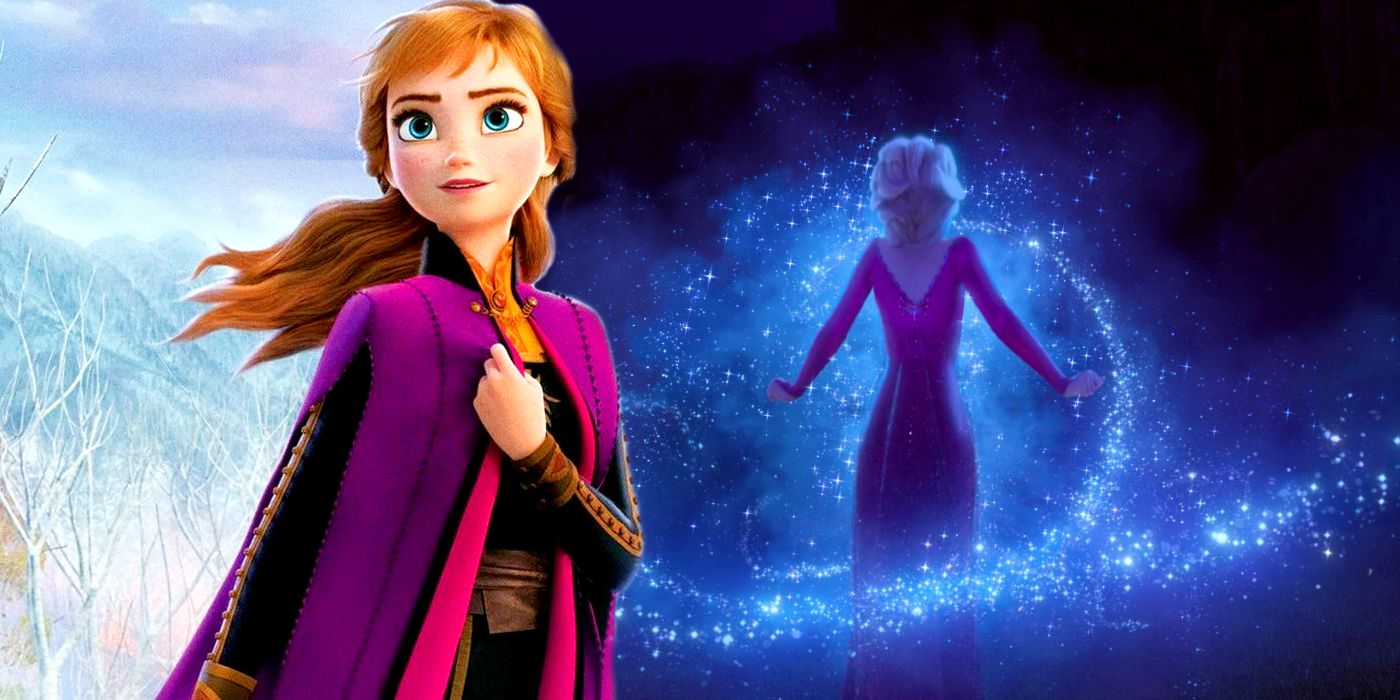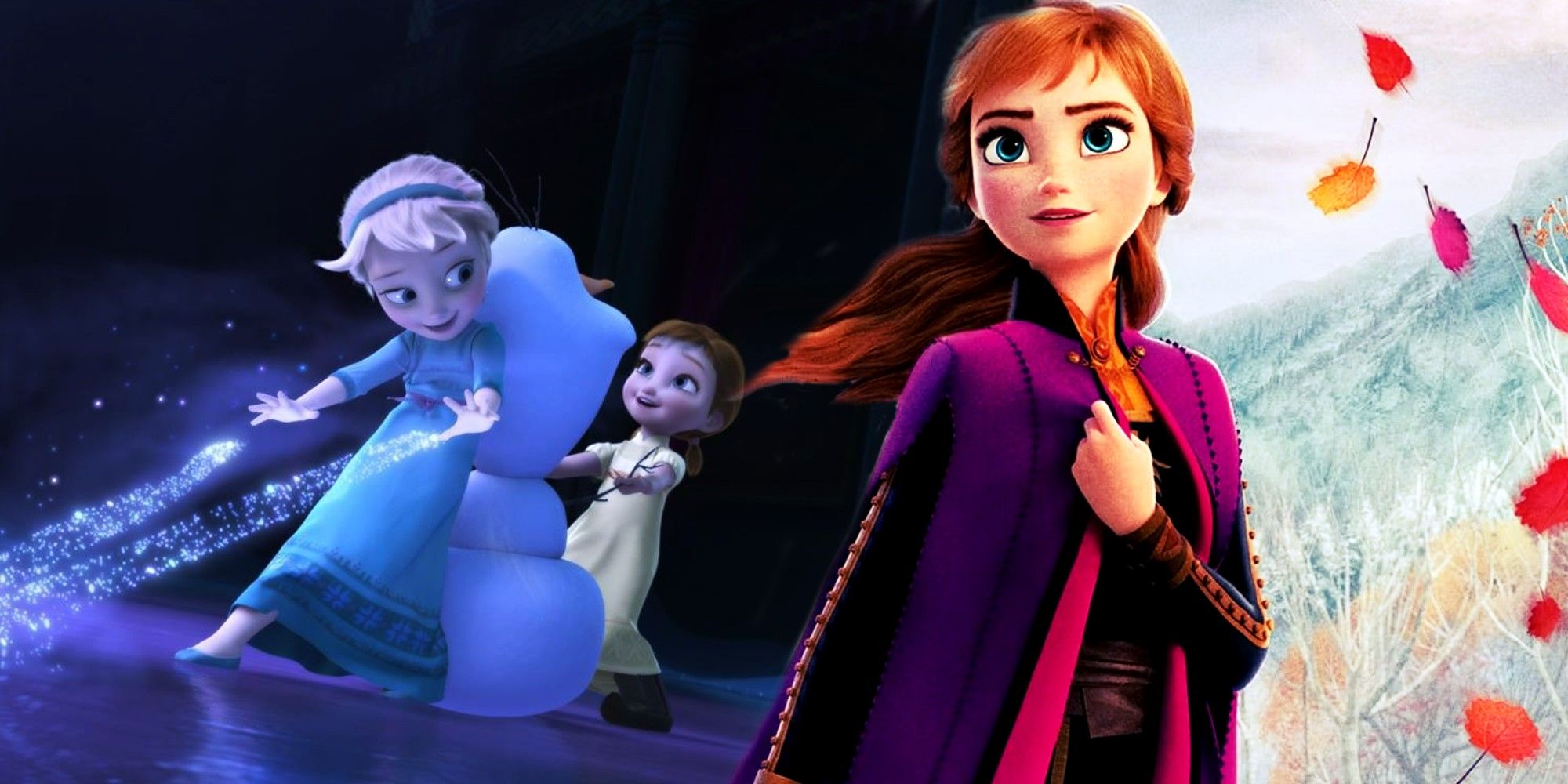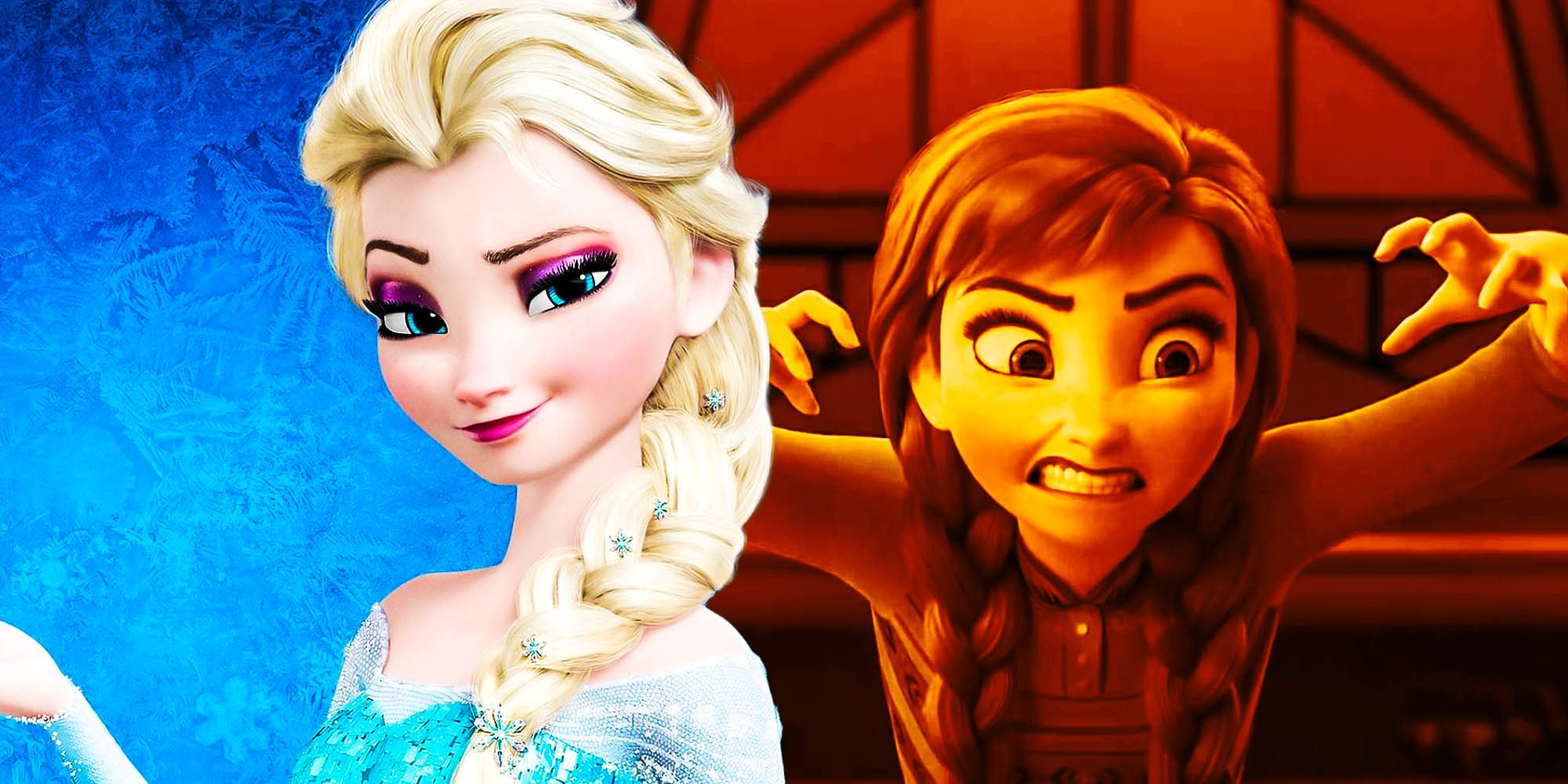Why Does Elsa Have Powers But Anna Doesn't? Unraveling Frozen's Biggest Mystery
Detail Author:
- Name : Dr. Leone Watsica DDS
- Username : plangworth
- Email : hamill.derick@gmail.com
- Birthdate : 1981-05-03
- Address : 781 Turcotte Inlet East Taraton, NM 84896-3670
- Phone : 1-657-945-1026
- Company : Yundt, Orn and Blanda
- Job : Pastry Chef
- Bio : Et et et tenetur atque at quas ad. Cum eaque repudiandae at facilis sit quisquam. Maxime aliquid quas quia qui sunt nam qui.
Socials
instagram:
- url : https://instagram.com/legros1980
- username : legros1980
- bio : Officiis non voluptatem perferendis vero dolores a earum nobis. Facere qui culpa vel ad.
- followers : 1966
- following : 2280
twitter:
- url : https://twitter.com/abbey_legros
- username : abbey_legros
- bio : Id et voluptatem quasi soluta sunt. Consequatur impedit voluptas eligendi rerum aut esse. Labore quo aut consequuntur asperiores iusto deserunt consequatur.
- followers : 5486
- following : 2090
tiktok:
- url : https://tiktok.com/@abbey_legros
- username : abbey_legros
- bio : Neque sunt maxime sint exercitationem.
- followers : 5952
- following : 2723
linkedin:
- url : https://linkedin.com/in/abbey_legros
- username : abbey_legros
- bio : Ad occaecati et qui ad fuga eius.
- followers : 1732
- following : 848
facebook:
- url : https://facebook.com/legrosa
- username : legrosa
- bio : Id id non aperiam et est sed.
- followers : 6848
- following : 58
For many fans of Disney’s beloved “Frozen” films, one question has lingered, almost like a persistent winter chill: if Elsa possesses incredible, magical abilities, why does her sister, Anna, not have any powers at all? It’s a curiosity that, quite honestly, has fascinated viewers for a very long time, ever since that first movie introduced us to the sisters of Arendelle.
The story of Elsa’s remarkable connection to ice and snow is, in a way, central to the whole narrative, yet Anna remains without any magical gifts. While “Frozen II” does a wonderful job exploring the very reasons why Elsa herself has these amazing powers, it doesn’t directly explain why Anna, or even their parents, seemingly have no magical abilities to speak of. This difference, really, feels like a key piece of the puzzle many have been eager to solve.
So, if you’ve ever wondered about this while watching “Frozen” and “Frozen II,” you’re certainly not alone. The films, particularly the second one, actually provide some subtle clues and answers to this enduring question, though many viewers might have missed the deeper reason. We’re going to explore those mysterious theories and the film’s own quiet explanations that help clarify this intriguing difference between the two royal sisters.
Table of Contents
- The Enduring Mystery: Elsa's Gift, Anna's Normality
- Frozen II's Subtle Revelation: The Deeper Connection
- Why Not Anna? Exploring the Absence of Magic
- The Power of Sisterhood: A Different Kind of Magic
- Looking Ahead: What's Next for Arendelle's Sisters?
- Frequently Asked Questions
The Enduring Mystery: Elsa's Gift, Anna's Normality
A Question That Lingers
From the moment we first saw Elsa conjure ice with a flick of her wrist, fans have been captivated by her unique abilities. But just as quickly, the question arose: why does only Elsa have these powers while Anna doesn’t? It’s a really common query that has, in a way, prompted countless discussions among viewers, trying to piece together the answer.
The first "Frozen" movie, in particular, left this aspect a bit ambiguous, focusing more on Elsa's struggle to control her powers and Anna's journey to save her sister. It didn't really elaborate on whether anyone else could develop these powers, but one might assume it's definitely possible in that world. Yet, for the sisters, the difference was always very clear.
Elsa's Powers: More Than Just Ice
To truly examine Anna's nonexistent powers, we have to start with the reference point of Elsa's powers. You know, her abilities aren't the easiest to define, as they expand beyond just simple control over ice and snow. As the story unfolds, especially in "Frozen II," we learn that her magic is something far more profound, something tied to the very fabric of their world.
Disney's official synopsis for "Frozen II" actually begins with this very question: "Why was Elsa born with magical powers?" The answer, it says, is calling her and threatening her kingdom. This suggests that Elsa’s powers are not just a random birthright, but rather a purposeful connection to something ancient and powerful, which is a really important distinction, in some respects.
Frozen II's Subtle Revelation: The Deeper Connection
Iduna's Sacrifice and the Spirit's Blessing
The true explanation for Elsa's powers, and Anna's lack thereof, comes to light in "Frozen II" through the story of their mother, Queen Iduna. As a young Northuldra girl, Iduna bravely saved Agnarr, the prince of Arendelle, during a conflict between their peoples. This act of selfless love and courage, basically, forged a deep connection with the Enchanted Forest's spirits.
The film implies that Iduna's heroic deed was recognized by the spirits, and as a result, a gift was bestowed upon her family. This gift, it seems, manifested in Elsa, making her the fifth spirit—a bridge between humanity and nature's magic. So, in a way, Elsa’s powers are a direct consequence of her mother’s bravery, a sort of magical blessing passed down.
Elsa as the Fifth Spirit
Elsa’s origin, power, and purpose get much more fleshing out in the second film. She is revealed to be the Fifth Spirit, a being meant to bring balance and understanding between the people of Arendelle and the magical spirits of the Enchanted Forest. This role is unique to her, a destiny tied to her birth and her mother’s lineage.
Her powers are not just a random ability; they are, quite literally, the manifestation of this spiritual connection. She represents the magic, the wildness, and the deep connection to nature that Arendelle had lost. This makes her powers less about a genetic trait and more about a chosen, or perhaps destined, purpose for her family line, which is really interesting.
Anna's Role: The Heart of Arendelle
While Elsa embodies the magic, Anna, in contrast, represents the human element, the heart of Arendelle. Her strength lies not in supernatural abilities but in her unwavering love, her resilience, and her ability to connect with people. She is, in a way, the anchor, the one who grounds the kingdom and its people.
The film suggests that Anna's strength is her compassion and her commitment to her family and her people. She doesn't need magic to be powerful; her true power comes from her emotional depth and her capacity for selfless action. This is, you know, a different kind of strength, but no less important.
Why Not Anna? Exploring the Absence of Magic
A Matter of Destiny, Not Deficiency
The question "Why didn't Anna have any at all?" is one that has, quite honestly, fascinated fans for a very long time. It’s not that Anna is somehow deficient; rather, her path and purpose are simply different. Elsa was chosen, or perhaps destined, to be the Fifth Spirit, a singular bridge between two worlds.
If Elsa had these amazing, magical powers, it doesn't automatically mean Anna, her own sister, should too. The gift, it seems, was specifically for the one who would become the bridge, and that was Elsa. This perspective shifts the focus from Anna lacking something to Elsa having a very specific, unique calling.
The Balance of Powers
The narrative of "Frozen II" subtly suggests a need for balance. If both sisters possessed immense magical powers, the dynamic of their relationship and their roles in Arendelle might be, you know, quite different. Elsa represents the wild, untamed magic, while Anna represents the human connection, the groundedness, and the warmth.
Their distinct abilities, or lack thereof, allow them to complement each other perfectly. Elsa can connect with the spirits and understand the magical world, while Anna can lead and empathize with the people. This creates a very strong, cohesive leadership for Arendelle, where both aspects are equally important.
Debunking Other Theories
There have been many mysterious theories that explain this difference. One popular, if a bit humorous, theory suggested that only blonde princesses in the "unified Disneyverse" develop superpowers, with Elsa and Rapunzel as prime examples. However, a new idea is contradicting that theory by suggesting a certain other Disney princess.
The film itself, however, leans away from such arbitrary rules. It's not about hair color or a random genetic lottery. It's tied to a specific act of heroism and a spiritual connection. Also, while some might wonder, "Could Anna actually have hidden powers?" the narrative seems to argue against it. Many believe she works better as a character if she doesn’t have magic, allowing her other strengths to truly shine, which is a fair point, really.
The Power of Sisterhood: A Different Kind of Magic
Anna's True Strength
Anna's strength, as we’ve seen throughout both films, is incredibly powerful, even without magic. She possesses immense courage, a never-give-up attitude, and an almost boundless capacity for love. She is the one who consistently pushes forward, even when faced with seemingly insurmountable obstacles, which is very inspiring.
Her ability to break Elsa’s frozen heart with an act of true love in the first film, and her unwavering determination to save Arendelle in the second, demonstrate a kind of power that magic simply cannot replicate. She is, quite simply, the embodiment of human resilience and affection, and that's a pretty strong force, honestly.
Complementary Roles
The relationship between Elsa and Anna is, in a way, the true heart of the "Frozen" saga. The film was praised for its messages about female agency and sisterhood, and their differing abilities actually strengthen this bond. They are not two halves of the same magical coin; they are two distinct individuals whose unique strengths complement each other perfectly.
Elsa, with her powers, protects the magical side of their world, while Anna, with her human qualities, protects the people and their kingdom. This division of roles allows them both to shine and to grow into their full potential, without one overshadowing the other. It’s a beautiful depiction of how different people can work together, you know, to achieve great things.
Looking Ahead: What's Next for Arendelle's Sisters?
Elsa's Expanding Purpose
With Elsa embracing her role as the Fifth Spirit, her story has proven to be taken into new and very different directions, and not necessarily the way some “fans” might have initially wanted. Her purpose now extends beyond Arendelle, connecting her deeply with the Enchanted Forest and its spirits. This suggests a future where her powers and responsibilities will continue to grow and evolve.
Given her personality, Elsa having a conventional love interest feels less likely to happen because her journey is so focused on her identity and her connection to the magical world. She is, in a way, on a path of self-discovery and spiritual guardianship, which is a rather unique direction for a Disney princess, or queen, as it were.
Anna's Reign and Growth
As for Anna, she has stepped into her role as the Queen of Arendelle, a position she is perfectly suited for, thanks to her grounded nature and deep love for her people. Her character, along with Kristoff, deserves more time to shine as they navigate the responsibilities of leadership. The film answered that question just as they said it would, about her being queen, and it feels right.
While some might still consider the idea of Anna having powers of her own, many believe she works better as a character if she doesn’t have them. Her strength truly comes from her humanity, her empathy, and her unwavering spirit. This allows her to lead Arendelle with a heart that understands its people, a very important quality for a monarch, you know, in any land.
Frequently Asked Questions
Here are some common questions people often ask about Elsa and Anna's powers:
Q: Is Anna really magic-free, or does she have hidden powers?
A: Based on the films, Anna does not possess any magical powers. Her strength comes from her immense love, courage, and leadership qualities. The narrative seems to suggest that her role is to be the human heart of Arendelle, complementing Elsa's magical connection.
Q: Why were Elsa and Anna not both born with powers if their mother was Northuldra?
A: The film implies that Elsa's powers are a unique gift, a blessing bestowed upon their family line as a direct result of Queen Iduna's selfless act of saving King Agnarr. It wasn't a general genetic trait passed to all offspring, but a specific manifestation of the spirits' gratitude, making Elsa the singular Fifth Spirit.
Q: Could anyone else in the Frozen world develop powers like Elsa?
A: The film is pretty ambiguous when it comes to this. While it focuses on Elsa's unique connection as the Fifth Spirit, it doesn't explicitly rule out others developing magical abilities under different circumstances. However, the narrative suggests Elsa's powers are tied to a very specific, rare lineage and destiny.
Learn more about Frozen characters on our site, and delve into the deeper meanings of Arendelle’s history.
The story of Elsa and Anna, and the question of their differing abilities, is a testament to the rich, layered storytelling that Disney has brought to life. It’s not just about ice and snow; it’s about destiny, sacrifice, and the profound strength found in love and sisterhood. The films, in a way, truly celebrate the idea that strength comes in many forms, magical and otherwise. This enduring mystery, it seems, has only made their story more compelling for fans around the globe, and it’s a question that will probably continue to spark conversations for years to come.


